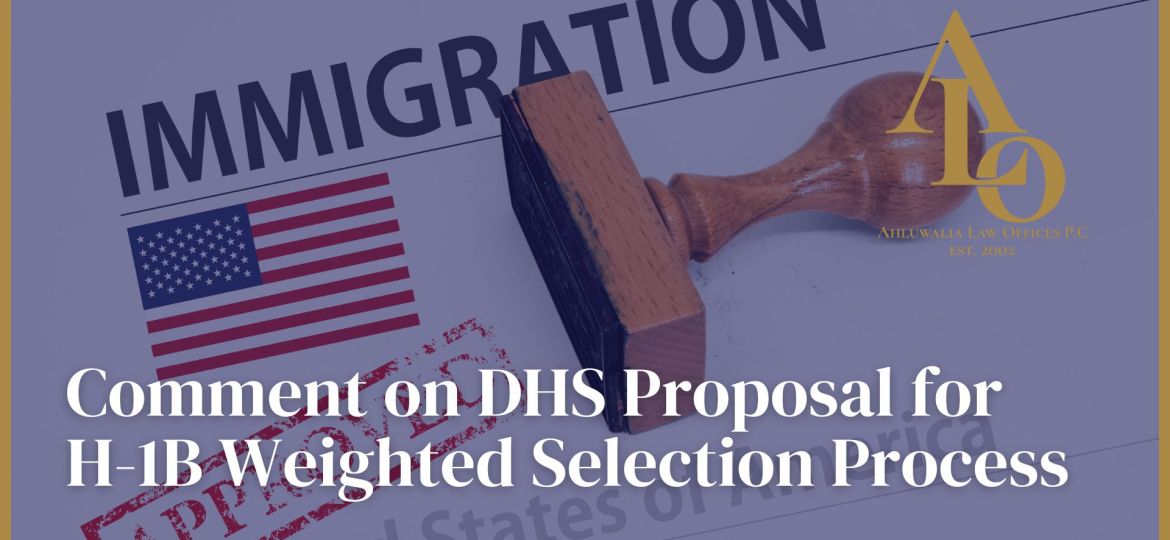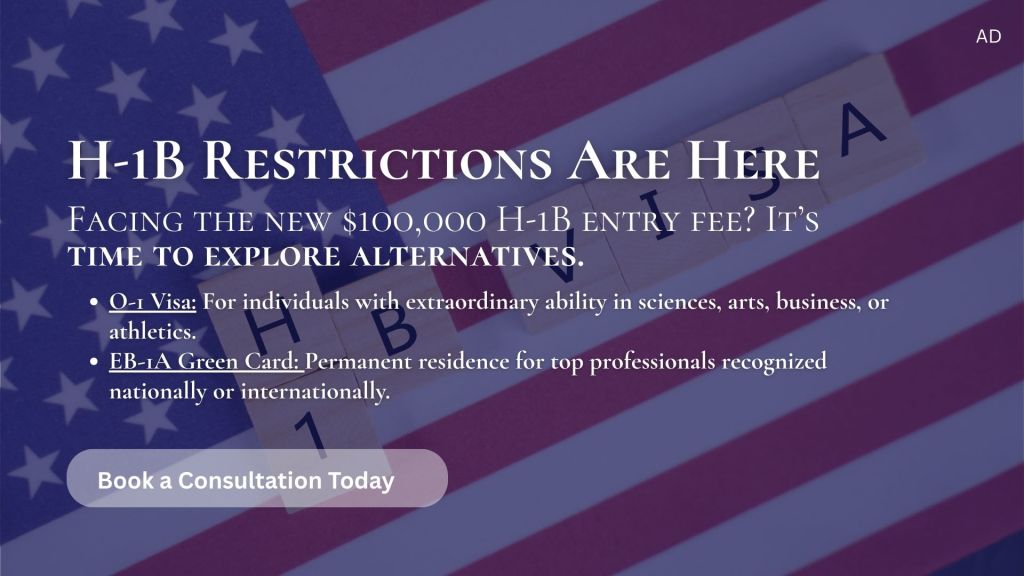
On September 24, 2025, the Department of Homeland Security (DHS), through U.S. Citizenship and Immigration Services (USCIS), published a Notice of Proposed Rulemaking (NPRM) to amend the H-1B registration and selection process. The proposal would replace the current random lottery with a weighted selection system that prioritizes petitions offering higher wages to foreign workers.
Purpose of the Rule
DHS explains that the weighted system is intended to:
- Align with the statutory intent of the H-1B program, ensuring visas go to the most highly skilled and fairly compensated workers.
- Safeguard U.S. workers by discouraging underpayment of foreign talent.
- Promote program integrity by reducing abuse of entry-level wage filings.
How the Weighted Selection Would Work
- Registrations would be assigned weights based on the wage level offered, as determined under the Department of Labor’s Occupational Employment and Wage Statistics system.
- Higher wage levels (Levels III and IV) would carry more weight in the selection process than lower levels (Levels I and II).
- This process would apply to cap-subject petitions, including the annual 65,000 H-1B regular cap and the 20,000 U.S. advanced degree exemption.
Comment Periods
- Comments on the rule itself are due by October 24, 2025.
- Comments on the associated information collections are due by November 24, 2025.
- Stakeholders may submit comments electronically through the Federal eRulemaking Portal by referencing DHS Docket No. USCIS–2025–0040.
Who May Be Affected
- Employers who rely on entry-level H-1B talent, such as IT consulting firms, startups, and research organizations.
- Foreign nationals entering the U.S. labor market at junior wage levels.
- Universities and nonprofit organizations that frequently sponsor foreign workers.
- Industry associations concerned about labor market access and competitiveness.
What Employers and Foreign Nationals Should Do Now
- Evaluate wage levels in advance of the 2027 H-1B cap season, as offering competitive wages may directly affect selection chances.
- Consider alternative immigration options such as O-1 visas, L-1 intracompany transfers, or employment-based green card categories if weighted selection reduces H-1B eligibility.
- Submit public comments if this proposal could materially affect your hiring, workforce planning, or immigration status. DHS relies on stakeholder feedback before finalizing rules.
Conclusion
The NPRM represents a significant shift in how H-1B visas will be allocated, moving from a random lottery toward a compensation-driven model. If your business or immigration plans may be impacted, it is critical to review the proposed rule and submit comments by the deadlines.
⚖️ At Ahluwalia Law Offices, we are closely monitoring these changes. We urge all affected stakeholders to consult legal counsel, evaluate their workforce strategies, and consider filing comments to ensure their voices are heard in this rulemaking process.


